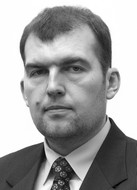Socio-psychological training in modern health psycho-technological toolkit to improve stress tolerance in academic personnel
Фотографии:
ˑ:
PhD, Associate Professor B.S. Vasyakin1
Dr.Hab., Professor M.S. Berezhnaya1
PhD, Associate Professor E.L. Pozharskaya1
Dr.Sc.Psych., Professor O.A. Ovsyanik1
1Plekhanov Russian University of Economics, Moscow
The study outlines the ways to improve health and stress tolerance of the academic personnel. The authors have designed and piloted a “Stress Control” socio-psychological training course, with the Plekhanov Russian University of Economics Physical Education and Psychology Departments staff being subject to the study. Prior to the course, the sample was tested for nervous-psychological balance, stress coping models and strategies and job-specific burnout levels. The primary health data were analyzed and applied to customize the “Stress Control” socio-psychological training course for the Experimental Group (EG). Upon completion of the course, the sample progress was rated by the post-course questionnaire survey, with the survey data compared with the pre-course ones. The socio-psychological training course was found beneficial as verified by the EG versus RG progress rates. Based on the study findings, we recommend training academic personnel on a regular basis to help them develop efficient mental-and-emotional control and stress coping skills; with the training service supported by a follow-up counseling service to help the personnel apply and advance the knowledge and skills.
Keywords: health promotion psychotechnologies, stress, stress control, socio-psychological training.
References
- Andryushchenko L. B., Vitko S. Y., Shutova T. N. Fizkulturno-ozdorovitelnye tekhnologii v ukreplenii sostoyaniya zdorovya studentov i sotrudnikov vuza [Physical culture and health technologies to strengthen health of university students and staff]. Sovremennye problemy nauki i obrazovaniya, 2016, no. 5, P. 261.
- Buckley R., Capel J. Teoriya i praktika treninga [The Theory and Practice of Training]. St. Petersburg: Piter publ., 2002, P. 167.
- Kondrakov G. B., Andryuschenko L. B., Vitko S.Yu. Formirovanie fizicheskoy kultury v vuze kak vazhny faktor professionalno-lichnostnogo razvitiya pedagogov. Sbornik nauch. tr. po itogam III mezhdunar. nauch.-prakt. konf. 'Aktualnye voprosy psikhologii, pedagogiki i obrazovaniya' [Formation of academic physical education in high school as an important factor of teacher's professional personality development. Proc. III International res.-practical conference 'Actual problems of psychology, pedagogics and education'], 2016, pp. 102–104.
- Pozharskaya E. L., Vasyakin B. S., Deberdeeva N. A. Problema stressa i issledovanie stepeni stressoustoychivosti sotrudnikov s ispolzovaniem sushchestvuyushchikh metodik [Problem of stress and personnel's degree of stress resistance studied using actual methods]. Uspekhi sovremennoy nauki i obrazovaniya, 2016, vol. 2, no. 3, pp. 72–77.
- Vasyakin B., Berezhnaya M., Pozharskaya E., Deberdeeva N. Adaptation of Graduates and Students of Regions to Education in Higher Education Institutions of Russia by Means of Social-Psychological Training. Available at: http://www.ccsenet.org / journal/index.php / res / issue / view / 1277 Review of European studies, 2015, vol. 7, no. 3, pp. 88–98.




 Журнал "THEORY AND PRACTICE
Журнал "THEORY AND PRACTICE